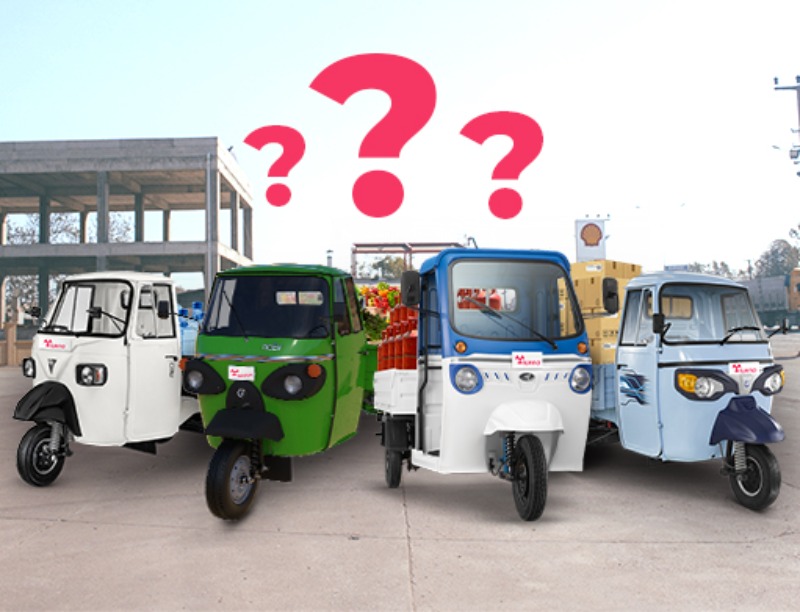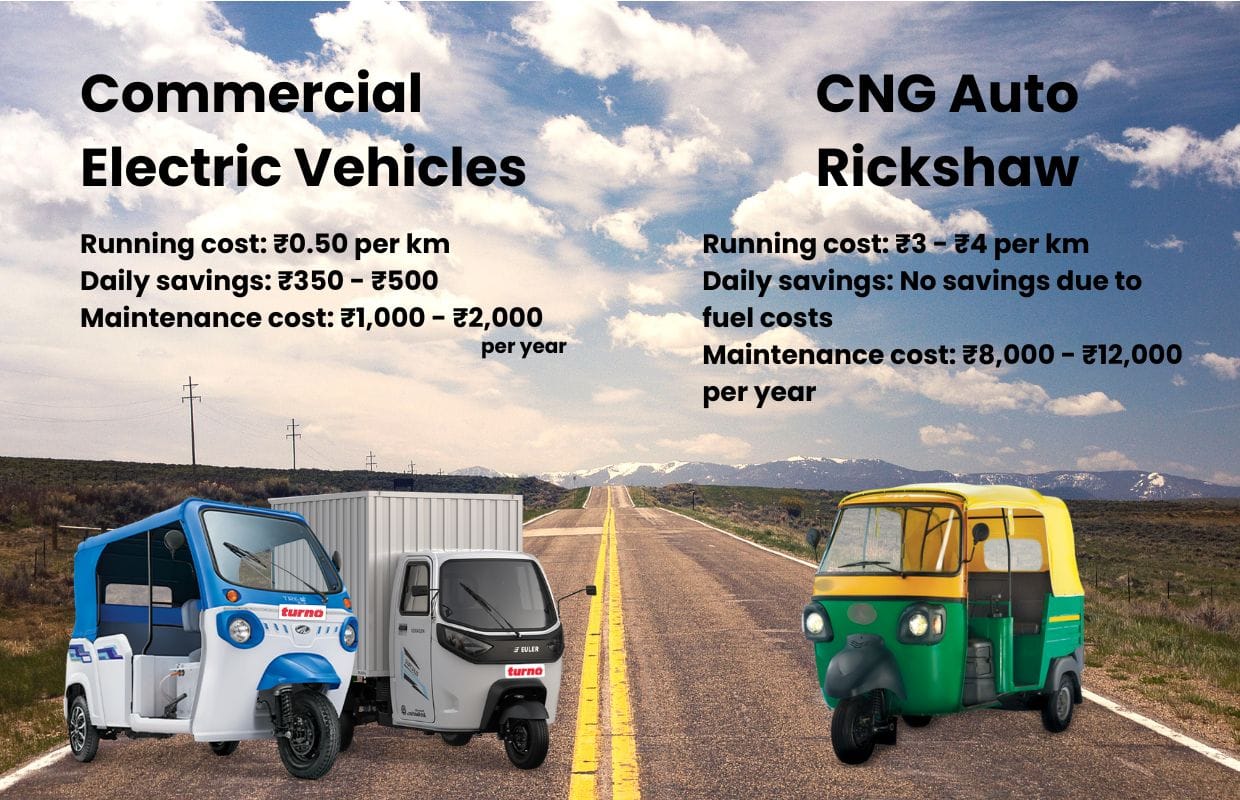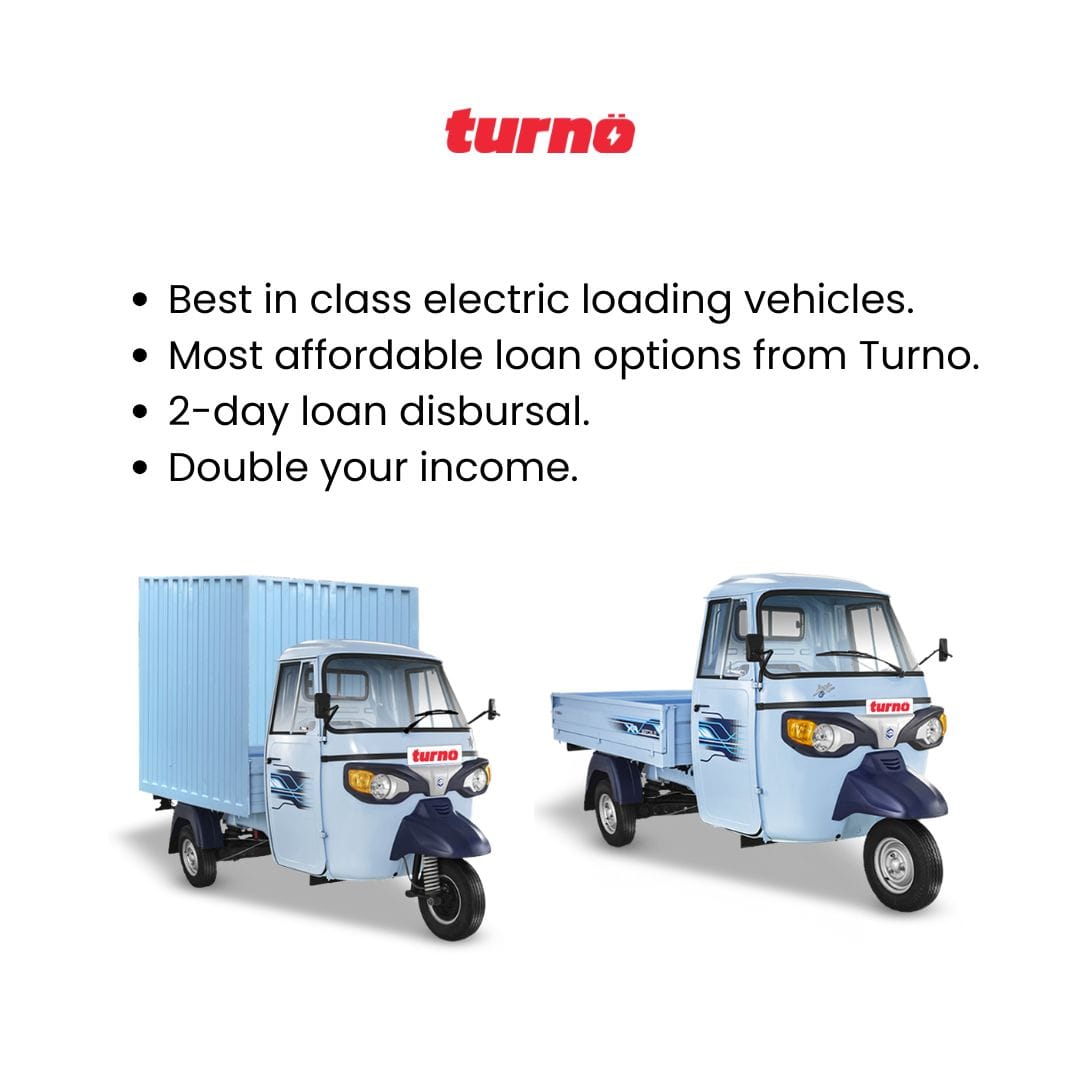Electric vehicles are a more and more common alternative for both consumers and businesses as the globe continues to place a high priority on sustainability and environmental preservation. Auto-rickshaws are a common means of transportation in highly crowded metropolitan areas, and electric versions are starting to replace traditional ones as a more environmentally friendly option. Before choosing, it's crucial to weigh the benefits and drawbacks of having an electric auto-rickshaw as a business. The viability of an electric autos depends on a number of variables, including your location, market demand, level of competition, and financial constraints.

Owning an Electric Auto-Rickshaw: Pros and Cons
Here are the advantages and disadvantages of owning an electric auto-rickshaw as a business investment to help you make an informed decision on whether it is the right choice for your business.
Pros
Lower maintenance: The low maintenance cost and higher energy efficiency make electric variants of auto-rickshaws more cost-effective to operate than traditional ones. As a result of having fewer mechanical parts and needing less regular maintenance, electric auto-rickshaws are less expensive to fix and buy new parts for.
Environmentally friendly: By deciding on an electric auto-rickshaw, you'll be decreasing air pollution and carbon emissions, which will benefit the environment. This can be crucial for companies that want to position themselves as environmentally conscious and draw in clients who have similar beliefs.
Potential fuel cost savings: Because electric load vehicles are powered by electricity, which is frequently less expensive than petrol, you could be able to save money over time on fuel expenses.
Potential government incentives: In many countries, there are government incentives and subsidies available for purchasing and operating electric vehicles, which can help offset the initial cost of buying an electric auto-rickshaw.
Quieter operation: Electric auto-rickshaws are known for their quieter operation, which can make them ideal for use in densely populated urban areas where noise pollution is a concern.
Long lifespan: Electric auto-rickshaws often have longer lifespans than traditional ones due to their simpler design and lower maintenance requirements. This means that they can provide a good return on investment over the long term.
Better resale value: Since electric auto-rickshaws are a newer technology, they often have better resale value than traditional ones. This can be beneficial if you decide to sell your vehicle in the future.
Enhanced safety features: Many electric auto-rickshaws come with advanced safety features such as anti-lock brakes, airbags, and electronic stability control. This can improve the safety of both the driver and the passengers.
Access to restricted areas: Some cities have restricted areas that are only accessible to electric vehicles. By owning an electric auto-rickshaw, you may have access to these restricted areas, which can provide additional business opportunities.
Cons
Higher initial cost: The expense of obtaining an electric auto-rickshaw is one of the greatest disadvantages. Due to the cost of battery technology and other electrical components, electric models are typically more expensive than conventional ones.
Limited driving range: Compared to conventional versions, electric auto-rickshaws may have a more constrained driving range depending on the battery size. If you frequently travel large distances, this might be a drawback.
Infrastructure for charging: Providing an accessible and dependable infrastructure for charging electric auto-rickshaws is a challenge in and of itself. Finding charging outlets could be challenging depending on where you are, which could reduce the operational range of your electric load vehicle.
Charging time: It can take several hours to fully recharge an electric auto-rickshaw, which can be a disadvantage if you need to use your vehicle for extended periods of time. This can also limit your ability to take advantage of opportunities that arise unexpectedly.
Battery degradation: While electric auto-rickshaws have fewer mechanical components, the battery is one of the most expensive and crucial components. The lifespan of the battery will vary depending on usage and environmental factors, and replacement costs can be significant.
Over time, the battery in an electric auto-rickshaw will degrade, which can reduce the vehicle's range and overall performance. Replacing the battery can be expensive, and it may need to be done more frequently than traditional auto-rickshaws require engine overhauls.
Limited availability: In some areas, electric auto-rickshaws may not be readily available for purchase or lease, which can limit your options for acquiring one. Additionally, finding mechanics who are familiar with the technology may be more challenging.
Comparing the E-AutoRickshaw with Traditional Auto-Rickshaw
Here is a table comparing some of the key features and costs of electric and traditional auto-rickshaws:
Environmental Impact
Here's another table that compares the environmental impact of electric and traditional auto-rickshaws:
Conclusion
In locations where there is a rising need for environmentally friendly transportation solutions, owning an electric auto-rickshaw might be a wise business decision. Although owning an electric auto-rickshaw comes with some difficulties, the advantages, including lower operating costs, lower maintenance costs, and government incentives, make it a desirable choice for many business owners. Before making a choice, it is crucial to carefully consider the advantages and disadvantages, as well as the unique requirements and needs of your company and the market you serve.
If you decide to buy and e-rickshaw, visit Turno. As experts of the electric autos with trusted partnerships, we will ensure that you buy the right electric auto-rickshaw that meets your business needs.




